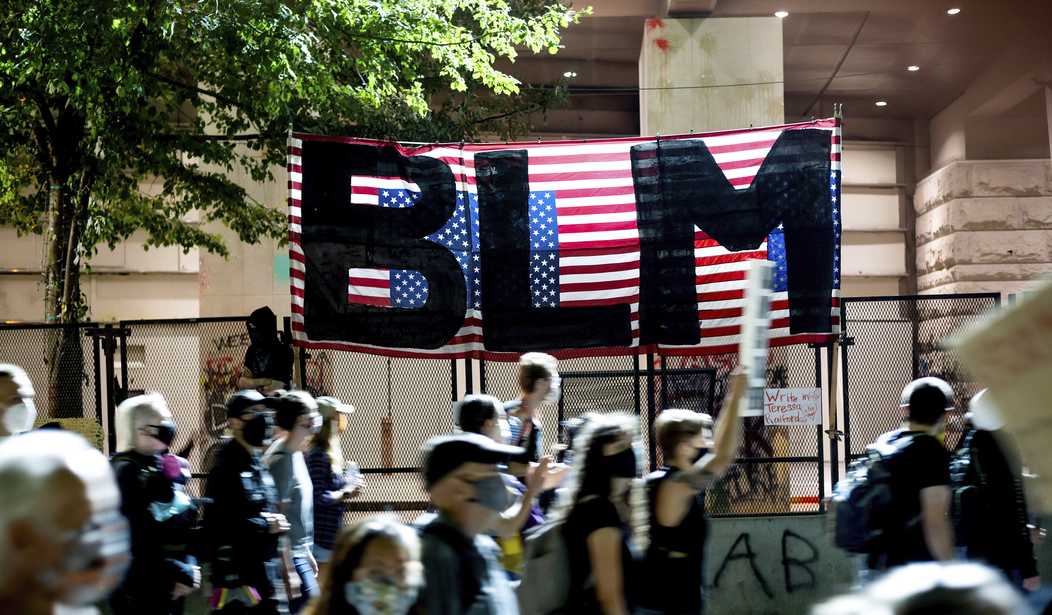How will future historians explain this? From 2001 to 2014, majorities of Americans, including supermajorities of blacks and non-Hispanic whites, told Gallup pollsters that "race relations" were either very or somewhat good.
Then, after the election and reelection of the first American president of African descent, each case with majorities of the popular vote and electoral votes, perceptions suddenly plunged.
Only around 50% of non-Hispanic whites rated race relations as good in 2015, 2019 and 2020. And the percentage of blacks taking that view fell to 51% in 2015, before Donald Trump's election as president, to 40% in 2019 and to 36% in 2020.
The short explanation is that August 2014 saw the emergence of the Black Lives Matter movement amid protests about the police killing in Ferguson, Missouri, of an 18-year-old black who had just robbed a convenience store and attempted to seize a policeman's gun.
And May 2020 saw 46-year-old George Floyd die while being restrained by then-officer Derek Chauvin after he was arrested on suspicion of distributing counterfeit money in Minneapolis. This week, a jury convicted Chauvin of second-degree murder, third-degree murder and second-degree manslaughter.
How common are such deaths? The Washington Post's database reports 3,630 people have been shot and killed by police since 2015, 3,503 of them men, 1,636 of the men white and 900 black. That's a higher share of blacks than in the general population but a lower percentage of blacks who have contact with police. An unhappy fact of life in America is that blacks are about seven to eight times more likely than whites to commit violent crimes.
Recommended
Floyd's death generated enormous publicity and a sizable increase in support for the Black Lives Matter movement among whites (to 43% in Civiqs polling) as well as blacks (to 69%).
That support was accompanied by widespread misperceptions of the magnitude of police shootings of blacks. As Canadian political scientist Eric Kaufmann points out, a Quadratics survey in fall 2020 found that 8 in 10 African Americans believe black men are more likely to be killed by police than die in an auto accident, as did 53% of white Biden voters but only 15% of white Trump voters.
Actually, thousands of black men die in auto accidents every year, while fewer than 300 a year, according to The Post, are killed by police. Similar questions showed that similarly wide divergences from reality are apparent on other racially charged questions, and indeed, ordinary people often have enormous misperceptions of many statistical relationships.
In any case, as Manhattan Institute scholar Coleman Hughes has argued, "The public perception of bigotry has surpassed the reality to such an extent that it has become a moral panic." Hughes blames "critical race theory and intersectionality" for "the misperception that bigotry is everywhere, even as the data tell a different story: racism exists, but there has never been less racism than there is now."
That's not the message sent by President Joe Biden when he decried "systemic racism" while rooting for Chauvin's conviction (as former President Richard Nixon rooted for Charles Manson's) and called the new voting law in Georgia -- much more accommodating than that in his own Delaware -- "Jim Crow on steroids."
Those views may be as politically problematic as senior Rep. Maxine Waters' unmistakable call to have more violent riots if Chauvin wasn't convicted. By 46% to 37%, whites now oppose Black Lives Matter, and a similar number in a national poll support the Georgia election law.
Central cities, starting with Minneapolis, proceeded to "defund the police," only to see murder rates zoom upward and many black lives end. The 50 largest cities cut their 2021 police budgets by 5%, but a USA Today poll found only 18% nationally favor defunding the police and 58% are opposed.
National polls, by the way, may be understating opposition. The Cook Report's Amy Walter reports that Republican voters may be especially unwilling to be polled, and a retrospective study of 2020 by five top Democratic pollsters reached a similar conclusion.
As "The Emerging Democratic Majority" co-author Ruy Teixeira points out, Americans' belief that "discrimination and racism are bad but they are not the cause of all disparities in American society" is "clearly at odds with causes" and views embraced by Democratic activists and "intellectual supporters."
The ebbing of their view that the America that elected and reelected Obama is just as racist as ever, and maybe more so, may be coinciding with (or caused by?) the emergence from lockdown made possible by America's vaccination success, just as the spread of the Black Lives Matter view after the death of George Floyd coincided with (or was caused by?) lockdown fatigue. All of this is a sense that it's time to emerge, into reality.
Michael Barone is a senior political analyst for the Washington Examiner, resident fellow at the American Enterprise Institute and longtime co-author of The Almanac of American Politics.
























Join the conversation as a VIP Member